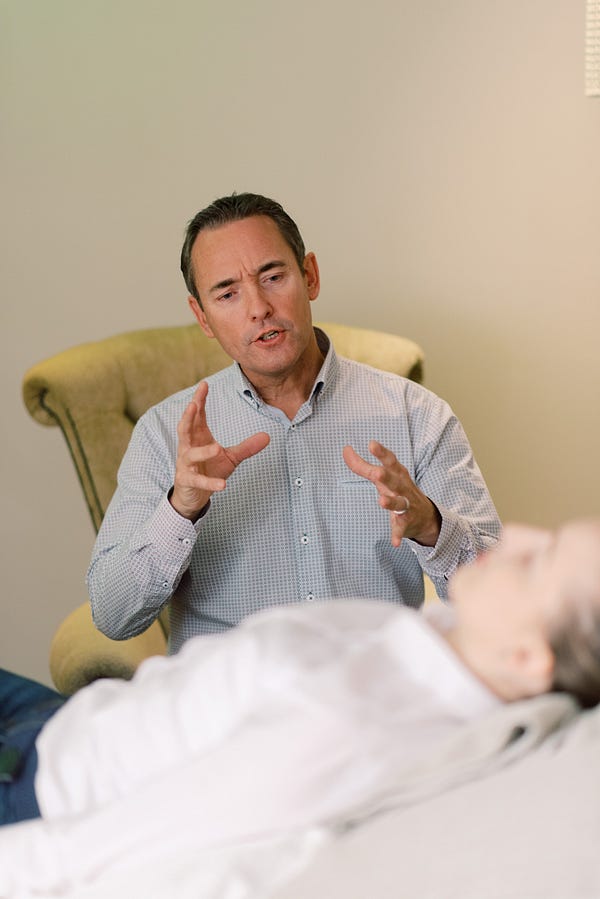Last updated on October 22nd, 2024 at 06:38 am
- Understanding Emotional Abuse
- The Impact of Emotional Abuse on Your Sense of Self
- Recognizing You’re Ready to Heal
- Setting the Foundation for Healing
- 1. Ensure Your Physical Safety
- 2. Create a Supportive Environment
- 3. Set Boundaries
- 4. Establish a Routine
- 5. Practice Self-Care
- 6. Seek Professional Help
- 7. Be Patient with Yourself
- Establishing a Daily Routine for Stability
- 1. Set Regular Sleep Times
- 2. Plan Your Meals
- 3. Make Time for Exercise
- 4. Schedule Self-Care
- 5. Practice Mindfulness
- 6. Connect with Others
- 7. Set Small Goals
- 8. End Your Day with Reflection
- Seeking Professional Support and Therapy
- 1. Safe Space to Share
- 2. Understanding Your Experience
- 3. Learning New Skills
- 4. Healing Past Wounds
- 5. Rebuilding Self-Esteem
- 6. Processing Trauma
- 7. Support for the Journey
- Setting Boundaries in Future Relationships
- 1. Know Your Rights
- 2. Identify Your Limits
- 3. Start Small
- 4. Use Clear Language
- 5. Don’t Justify
- 6. Expect Pushback
- 7. Follow Through
- 8. Be Consistent
- 9. Respect Others’ Boundaries
- 10. Reevaluate Regularly
- Reconnecting with Hobbies and Passions
- 1. Remember What You Loved
- 2. Start Small
- 3. Try New Things
- 4. Make Time for Fun
- 5. Join Groups
- 6. Be Patient
- 7. Celebrate Small Wins
- 8. Use Your Hobbies for Healing
- 9. Share Your Passion
- 10. Remember It’s for You
- Practicing Mindfulness and Meditation
- 1. Start Small
- 2. Focus on Your Breath
- 3. Use Guided Meditations
- 4. Practice Body Scans
- 5. Try Mindful Activities
- 6. Be Kind to Yourself
- 7. Create a Calm Space
- 8. Use Mindfulness Apps
- 9. Join a Meditation Group
- 10. Be Patient
- Journaling for Self-Discovery
- 1. Express Yourself Freely
- 2. Track Your Progress
- 3. Identify Patterns
- 4. Process Emotions
- 5. Reconnect with Your True Self
- 6. Practice Gratitude
- 7. Set and Track Goals
- 8. Explore “What If” Scenarios
- 9. Write Letters You Won’t Send
- 10. Use Prompts
- Affirmations and Positive Self-Talk
- 1. Notice Negative Self-Talk
- 2. Challenge Negative Thoughts
- 3. Create Positive Affirmations
- 4. Use “I Am” Statements
- 5. Make It Personal
- 6. Say Them Out Loud
- 7. Write Them Down
- 8. Use Them Daily
- 9. Be Patient
- 10. Update Your Affirmations
- Setting Realistic and Achievable Goals
- 1. Start Small
- 2. Be Specific
- 3. Make Them Measurable
- 4. Set a Timeframe
- 5. Write Them Down
- 6. Break Big Goals into Smaller Steps
- 7. Celebrate Small Wins
- 8. Adjust as Needed
- 9. Focus on Personal Growth
- 10. Visualize Success
- Rediscovering Your Identity Outside of the Relationship
- 1. Explore Your Interests
- 2. Define Your Values
- 3. Make Your Own Choices
- 4. Spend Time Alone
- 5. Express Yourself
- 6. Set Personal Boundaries
- 7. Challenge Negative Beliefs
- 8. Reconnect with Old Friends
- 9. Try New Things
- 10. Practice Self-Reflection
- Engaging in Physical Exercise for Emotional Well-being
- 1. Boosts Mood
- 2. Reduces Stress
- 3. Improves Sleep
- 4. Builds Confidence
- 5. Provides Distraction
- 6. Offers Control
- 7. Start Small
- 8. Find What You Enjoy
- 9. Be Consistent
- 10. Be Kind to Yourself
- Letting Go of Guilt
- 1. Recognize It’s Not Your Fault
- 2. Challenge Guilty Thoughts
- 3. Practice Self-Compassion
- 4. Understand Guilt’s Purpose
- 5. Write It Out
- 6. Talk to Others
- 7. Focus on the Present
- 8. Make Amends If Needed
- 9. Practice Forgiveness
- 10. Turn Guilt into Action
- Building a Support Network
- 1. Identify Supportive People
- 2. Reach Out
- 3. Join Support Groups
- 4. Be Open
- 5. Ask for Help
- 6. Offer Support in Return
- 7. Set Boundaries
- 8. Try New Activities
- 9. Seek Professional Help
- 10. Be Patient
- Celebrating Your Progress
- 1. Keep a Victory Journal
- 2. Share Your Wins
- 3. Reward Yourself
- 4. Practice Gratitude
- 5. Compare with Your Past Self
- 6. Create Milestones
- 7. Use Visual Reminders
- 8. Positive Self-Talk
- 9. Share Your Story
- 10. Be Patient with Setbacks
- Navigating Complex Emotions During Healing
- Recognizing Different Forms of Abuse
- Identifying Signs of Abuse in Different Relationships
- Overcoming Feelings of Worthlessness and Building Resilience
- Establishing Healthy Boundaries and Impenetrable Boundaries
- The Role of Professional Guidance in the Healing Process
- Access Therapy and Additional Resources
- Breaking the Abuse Cycle with Healthy Relationship Habits
- Rebuilding Social and Professional Relationships
- Impact of Physical and Emotional Abuse on Health
- Addressing Traumatic Stress Disorder
- Building Healthier Coping Mechanisms
- Mindfulness and Deep Breathing Exercises
- Importance of Regular Exercise in Healing
- Type of Exercise Would Best Suit Emotional Recovery?
- Developing a Balanced Diet for Physical Health
- Healing Modalities for Emotional Recovery
- Exploring Additional Resources for Support
- Addressing Mental Health Issues Resulting from Abuse
- Bessel van der Kolk’s Insights on Healing Trauma
- Experiencing Cognitive Dissonance During the Healing Process
- Breaking Free from Confusion and Feelings of Denial
- Tackling Negative Impacts of Various Kinds of Abuse
- Navigating the Long-Term Effects of Abuse
- Healthy Relationship Habits as a Step Towards Healing
- Learning Life Skills to Overcome Abusive Patterns
- Addressing Sexual Abuse and Sexual Behavior Issues
- Guidance for Overcoming the Trauma of Sexual Assault
- Recognizing Dangerous Situations and Abusive Patterns
- Avoiding Wrong People in Romantic and Professional Relationships
- Addressing Physical Health Issues Stemming from Abuse
- Maintaining Physical Health with Healthy Eating and Exercise
- Understanding Emotional Turmoil During Long-Term Recovery
- Using Healing Modalities to Manage Emotional Pain
- Forming New Social and Professional Connections
- Building an Online Network for Support
- Conclusion: Embracing Your New Self
- Frequently Asked Questions
- How To Recognize Emotional Abuse And Its Impact On Your Sense Of Self
- What Are The First Steps To Rebuilding Your Identity After Emotional Abuse?
- How Can You Establish Healthy Boundaries In Romantic Relationships After Abuse?
- What Role Does Regular Exercise Play In The Healing Process?
- How To Cope With Intense Emotions During The Healing Process
- How Can Victims Recognize The Cycle Of Abuse And Break Free From It?
- Why Is Seeking Professional Guidance Important After Emotional Abuse?
- How Can Emotional Abuse Affect Physical Health?
- What Are Effective Healing Modalities After Long-Term Emotional Abuse?
- How Can Healthy Eating Contribute To The Healing Process?
- What Are The Long-Term Effects Of Emotional Abuse On Mental Health?
- How Can One Rebuild Trust In Social Relationships After Abuse?
- Why Is Emotional Abuse Incredibly Damaging Compared To Other Forms Of Abuse?
- How Does Cognitive Dissonance Play A Role In Emotional Abuse?
- What Are The Signs Of Abuse In Romantic And Professional Relationships?
- How To Overcome Feelings Of Worthlessness After Emotional Abuse?
- How Can One Avoid Future Abuse And Build Impenetrable Boundaries?
- What Are The Negative Long-Term Impacts Of Verbal And Emotional Abuse?
- How Can Abusive Behaviors Be Identified In An Intimate Relationship?
- Why Is It Essential To Address Both Mental And Physical Health During Recovery?
Have you ever felt like you lost who you are? Like your true self was buried under hurtful words and actions? Emotional abuse can make you feel small, broken, and lost. But there is hope. You can find yourself again and become whole.
This journey isn’t easy, but you’re not alone. Many others have walked this path before you. With time, care, and support, you can heal. You can rediscover your voice, learn to love yourself again, and build a life filled with joy.
In this guide, we’ll explore how to rebuild your sense of self after emotional abuse. We’ll look at practical steps you can take each day to feel stronger. You’ll learn how to set healthy boundaries, connect with others, and nurture your inner light.
The road ahead may seem long, but remember – you are brave, you are worthy, and you can rise from the ashes. Your true self is still there, waiting to shine. Let’s begin the journey of healing and self-discovery together.


Understanding Emotional Abuse
Emotional abuse hurts you on the inside. It’s when someone tries to control you by making you feel bad about yourself. They might yell, call you names, ignore you, or make you feel guilty. This abuse can come from a partner, parent, friend, or anyone close to you.
Over time, emotional abuse can make you doubt yourself. You might start to believe the mean things the abuser says. You may feel scared, sad, or angry all the time. It’s hard to be yourself when someone is always putting you down.
The effects of emotional abuse can last long after the abuse stops. You might have trouble trusting others or speaking up for yourself. You may feel anxious, depressed, or have low self-esteem. These feelings are normal reactions to abuse, but they can be overcome.
“A narcissist, on the other hand, is the exact opposite of an empath. Emotionally, narcissists are like brick walls who see and hear others but fail to understand or relate to them. As a result of their emotional shallowness, narcissists are essentially devoid of all empathy or compassion for other people. Lacking empathy, a narcissist is a very destructive and dangerous person to be around.”
― Mateo Sol
Recognizing the signs of emotional abuse is the first step to healing. Once you see what’s happening, you can start to make changes.
The Impact of Emotional Abuse on Your Sense of Self
Emotional abuse can deeply hurt your sense of who you are. It’s like a hammer that keeps hitting your self-worth until it cracks. Here’s how it can affect you:
- Loss of confidence: You might stop believing in your own ideas and skills.
- Feeling worthless: The abuser’s words can make you feel like you don’t matter.
- Confusion: You may not know what’s real anymore because the abuser twists things.
- Fear of being yourself: You might hide your true self to avoid being hurt.
- Trouble making decisions: You may doubt your own judgment after being criticized so much.
- Feeling numb: Some people shut down their feelings to cope with the pain.
These effects can last even after you’re out of the abusive situation. You might find it hard to trust your own thoughts and feelings. It’s like you’ve lost touch with who you really are.
“The deal with dating conceited men like him was that she’d hoped some of his excess self-esteem would rub off. Women always secretly hoped this: that dating a narcissist would give them confidence by osmosis. It never worked.”
― Chuck Palahniuk
But here’s the good news: your true self is still there. It may be hidden under layers of hurt, but it’s waiting to come out. Healing from narcissistic abuse takes time, but you can rebuild your sense of self.


Recognizing You’re Ready to Heal
Healing starts when you’re ready. It’s like waking up from a long, bad dream. You might feel scared, but also hopeful. Here are some signs that you’re ready to start healing:
- You see the abuse for what it is: You’re no longer making excuses for the abuser.
- You want change: You’re tired of feeling bad and want to feel better.
- You’re curious about yourself: You wonder who you are without the abuse.
- You’re open to help: You’re willing to talk to others or try new ways to heal.
- You have hope: Even if it’s just a tiny spark, you believe things can get better.
“Most of the narcissists are geniuses and masters of Psychology. But they are using their knowledge to eradicate, rather than to help humanity.”
― Mwanandeke Kindembo
Setting the Foundation for Healing
Before you can rebuild, you need a solid foundation. This means creating a safe, stable environment for yourself. Here’s how to start:
1. Ensure Your Physical Safety
If you’re still in an abusive situation, your safety comes first. Make a plan to leave if you need to. Reach out to trusted friends, family, or a local shelter for help. Remember, you deserve to be safe.
“Narcissists often feign oppression because narcissists always feel entitled.”
― Criss Jami
2. Create a Supportive Environment
Surround yourself with people who believe in you. This might mean reconnecting with old friends or making new ones. Join a support group for abuse survivors. Having people who understand can make a big difference.


3. Set Boundaries
Learning to set boundaries is key to healing. Start small. Say “no” to things you don’t want to do. Speak up when something bothers you. It might feel scary at first, but it gets easier with practice.
“Maybe, the lesson we can all learn from the inner sadness of a Narcissist is to see through our own fabrications, our own illusions so that we can be set free to be real once more.”
― Shannon L. Alder
4. Establish a Routine
A daily routine can help you feel more in control. Try to wake up and go to bed at the same time each day. Plan regular meals and activities. This structure can be comforting when you’re healing.
5. Practice Self-Care
Take care of your basic needs. Eat healthy foods, get enough sleep, and move your body. These simple things can help you feel stronger and more balanced.
6. Seek Professional Help
A therapist who understands emotional abuse can be a big help. They can guide you through the healing process and give you tools to cope. Don’t be afraid to ask for help.


7. Be Patient with Yourself
Healing takes time. There will be good days and hard days. That’s normal. Be gentle with yourself as you go through this process.
Setting this foundation is like planting seeds. It might not look like much at first, but with care and time, it will grow into something beautiful – a new, stronger you.
Establishing a Daily Routine for Stability
Having a steady routine can help you feel more stable when everything else feels shaky. It gives you a sense of control and helps you focus on taking care of yourself. Here’s how to create a helpful daily routine:
1. Set Regular Sleep Times
Try to go to bed and wake up at the same time every day, even on weekends. Good sleep helps your body and mind heal.
“Speaking to narcissists and imagining having a normal human interaction is called delusion.”
Alice Little
2. Plan Your Meals
Eat regular, healthy meals. This keeps your energy up and shows you’re taking care of yourself.
3. Make Time for Exercise
Even a short walk can boost your mood. Find a type of movement you enjoy and do it regularly.


4. Schedule Self-Care
Set aside time each day for something that makes you feel good. This could be reading, taking a bath, or listening to music.
5. Practice Mindfulness
Spend a few minutes each day being present in the moment. This can help calm your mind and reduce stress.
6. Connect with Others
Plan time to talk to supportive friends or family. This could be a daily phone call or weekly meetup.
7. Set Small Goals
Each day, set a small goal for yourself. It could be as simple as making your bed or trying a new recipe.
8. End Your Day with Reflection
Before bed, think about one good thing that happened that day. This helps train your brain to notice the positive.
Remember, your routine should work for you. If something doesn’t feel right, it’s okay to change it. The goal is to create a daily life that makes you feel safe and cared for.


As you follow your routine, you might notice you feel calmer and more in control. This is a sign that you’re building a strong foundation for healing. Keep at it, even on hard days. Your future self will thank you.
Seeking Professional Support and Therapy
Getting help from a professional can make a big difference in your healing journey. A therapist who understands emotional abuse can give you tools to cope and help you work through your feelings. Here’s why therapy can be so helpful:
1. Safe Space to Share
Therapy gives you a safe place to talk about what happened without fear of judgment. You can express your true feelings and thoughts.
2. Understanding Your Experience
A therapist can help you make sense of the abuse you went through. They can explain how it affected you and why you feel the way you do.
3. Learning New Skills
In therapy, you can learn new ways to cope with stress, set boundaries, and build healthy relationships.


4. Healing Past Wounds
Often, emotional abuse brings up old hurts from the past. A therapist can help you work through these and find healing.
5. Rebuilding Self-Esteem
Therapy can help you challenge negative beliefs about yourself and build a more positive self-image.
6. Processing Trauma
If you have PTSD from the abuse, a therapist can use special techniques to help you process the trauma.
7. Support for the Journey
Healing isn’t always easy. A therapist can support you through the ups and downs of your recovery.
When looking for a therapist, it’s okay to shop around. You want someone you feel comfortable with and who has experience with emotional abuse. Many therapists offer a free first session to see if it’s a good fit.
Remember, seeking help is a sign of strength, not weakness. It shows you’re committed to your healing and growth. With the right support, you can overcome the effects of abuse and build a life you love.
Setting Boundaries in Future Relationships
Learning to set healthy boundaries is key to protecting yourself and building strong relationships. After emotional abuse, it can be hard to know what good boundaries look like. Here’s how to start:
1. Know Your Rights
Remember, you have the right to:
- Be treated with respect
- Say no without feeling guilty
- Have your own thoughts and feelings
- Ask for what you need
- Have privacy
2. Identify Your Limits
Think about what makes you feel uncomfortable or upset. These are your boundaries. They might be physical, emotional, or mental.
3. Start Small
Practice setting small boundaries first. For example, tell a friend you need alone time when you’re feeling overwhelmed.
4. Use Clear Language
When setting a boundary, be clear and direct. Instead of “Maybe we could…” say “I need…”
5. Don’t Justify
You don’t need to explain or defend your boundaries. “No” is a complete sentence.
6. Expect Pushback
Some people might not like your new boundaries. That’s okay. Stand firm.
7. Follow Through
If someone crosses your boundary, take action. This shows you’re serious about your limits.
8. Be Consistent
Apply your boundaries to everyone, not just some people.
9. Respect Others’ Boundaries
Just as you want your boundaries respected, respect others’ boundaries too.
10. Reevaluate Regularly
As you grow and change, your boundaries might change too. That’s normal.
Setting boundaries can feel scary at first, especially if you’re not used to it. But with practice, it gets easier. Remember, healthy boundaries are a sign of self-respect. They protect you and help you build relationships based on mutual respect and care.
Reconnecting with Hobbies and Passions
After emotional abuse, you might feel disconnected from the things you once loved. Reconnecting with your hobbies and passions is a powerful way to rediscover yourself. Here’s how to start:
1. Remember What You Loved
Think back to activities you enjoyed before the abuse. What made you happy? What excited you?
2. Start Small
Don’t pressure yourself to dive in fully. Start with small steps. If you loved painting, maybe just buy some art supplies and doodle.
3. Try New Things
Explore new hobbies too. This can help you learn more about yourself and what you enjoy now.
4. Make Time for Fun
Schedule regular time for your hobbies. Even 15 minutes a day can make a difference.
“Kindness from a narcissist is called an illusion.”
― Alice Little
5. Join Groups
Look for local clubs or online communities related to your interests. This can help you connect with others who share your passion.
6. Be Patient
It might take time to feel joy from your hobbies again. That’s okay. Keep trying.
7. Celebrate Small Wins
Did you finish a book? Paint a picture? Celebrate these accomplishments, no matter how small they seem.
8. Use Your Hobbies for Healing
Some hobbies, like journaling or art, can be great tools for processing your feelings.
9. Share Your Passion
As you feel comfortable, share your hobbies with others. This can help build new, positive relationships.
10. Remember It’s for You
Don’t worry about being “good” at your hobby. The goal is to enjoy yourself and express who you are.
Reconnecting with your hobbies can bring joy back into your life. It reminds you that you’re more than what happened to you. You’re a person with interests, skills, and passions.
As you rediscover these parts of yourself, you might feel more confident and alive. Your hobbies are a part of who you are. They’re something the abuser couldn’t take away, even if they were hidden for a while. Embrace them, and let them help you rebuild your sense of self.
Practicing Mindfulness and Meditation
Mindfulness and meditation can be powerful tools in your healing journey. They help you stay present, manage stress, and reconnect with yourself. Here’s how to start:
1. Start Small
Begin with just a few minutes of mindfulness each day. You can increase the time as you get more comfortable.
2. Focus on Your Breath
A simple way to start is by focusing on your breathing. Notice the air moving in and out of your body.
3. Use Guided Meditations
There are many free guided meditations online. These can help you learn how to meditate.
4. Practice Body Scans
A body scan involves focusing on each part of your body, from your toes to your head. This can help you feel more connected to your body.
5. Try Mindful Activities
You can practice mindfulness while doing everyday things. Pay full attention when you’re eating, walking, or washing dishes.
6. Be Kind to Yourself
Your mind will wander during meditation. That’s normal. When you notice it, gently bring your focus back.
7. Create a Calm Space
Have a quiet, comfortable place where you can practice mindfulness regularly.
8. Use Mindfulness Apps
There are many apps that offer guided meditations and mindfulness exercises.
9. Join a Meditation Group
Meditating with others can help you stay motivated and learn new techniques.
10. Be Patient
Like any skill, mindfulness takes practice. Don’t get discouraged if it feels hard at first.
Mindfulness can help you in many ways as you heal. It can:
- Reduce stress and anxiety
- Help you manage difficult emotions
- Improve your focus and concentration
- Increase self-awareness
- Promote better sleep
Remember, mindfulness is about being present without judgment. It’s a way to observe your thoughts and feelings without getting caught up in them. This can be especially helpful when dealing with painful memories or negative self-talk.
As you practice mindfulness, you might notice you feel calmer and more centered. You may find it easier to recognize your own needs and feelings. This awareness is a key part of rebuilding your sense of self after abuse.
Journaling for Self-Discovery
Writing in a journal can be a powerful way to explore your thoughts and feelings. It’s like having a conversation with yourself. Here’s how journaling can help you rebuild your sense of self:
1. Express Yourself Freely
Your journal is a safe place to say anything. Write about your fears, hopes, and dreams without worry.
2. Track Your Progress
Looking back at old entries can show you how far you’ve come in your healing journey.
3. Identify Patterns
Writing regularly can help you see patterns in your thoughts and behaviors. This can lead to important insights.
4. Process Emotions
Putting your feelings into words can help you understand and manage them better.
5. Reconnect with Your True Self
Journaling can help you rediscover your likes, dislikes, values, and dreams. You might be surprised by what you learn about yourself.
6. Practice Gratitude
Write down things you’re grateful for each day. This can help shift your focus to the positive aspects of your life.
7. Set and Track Goals
Use your journal to set goals for yourself and track your progress. This can boost your confidence and motivation.
8. Explore “What If” Scenarios
Write about different possibilities for your future. This can help you imagine a life beyond the abuse.
9. Write Letters You Won’t Send
Sometimes, writing a letter to your abuser or to your past self can be healing. You don’t have to send these letters.
10. Use Prompts
If you’re not sure what to write about, try using journal prompts. These can spark new ideas and insights.
As you journal, you might notice your writing change over time. You might see your strength and resilience shine through more. This is a sign that you’re reconnecting with your true self and healing from the effects of narcissistic abuse.
Affirmations and Positive Self-Talk
The way we talk to ourselves matters. After emotional abuse, your inner voice might be very critical. Learning to use positive self-talk and affirmations can help change this. Here’s how to start:
1. Notice Negative Self-Talk
The first step is to notice when you’re being hard on yourself. These thoughts often start with “I’m so…” or “I always…”


2. Challenge Negative Thoughts
When you notice a negative thought, ask yourself: Is this really true? Would I say this to a friend?
3. Create Positive Affirmations
Make a list of positive statements about yourself. For example: “I am strong,” “I deserve love and respect,” “I am capable of healing.”
4. Use “I Am” Statements
Start your affirmations with “I am” to make them more powerful. “I am worthy” is stronger than “I will be worthy someday.”
5. Make It Personal
Choose affirmations that feel true to you. If “I am beautiful” doesn’t feel right, try “I am valuable” instead.
6. Say Them Out Loud
Speaking your affirmations out loud can make them feel more real. Try saying them in front of a mirror.
7. Write Them Down
Write your affirmations in your journal or on sticky notes. Put them where you’ll see them often.
8. Use Them Daily
Make affirmations part of your daily routine. Say them in the morning or before bed.
9. Be Patient
It might feel strange at first. Your mind might resist. Keep practicing, and it will get easier.
10. Update Your Affirmations
As you grow and heal, your affirmations might change. That’s good! It means you’re making progress.
Positive self-talk and affirmations can help you break free from the cycle of narcissistic abuse. They remind you of your worth and strength. Over time, they can help change the way you think about yourself.
Remember, you’re retraining your brain. It takes time and practice. Be patient and kind with yourself as you learn this new skill.
Setting Realistic and Achievable Goals
Setting goals can give you a sense of purpose and direction as you heal. But it’s important to set goals that are realistic and achievable. Here’s how:
1. Start Small
Begin with small, easy-to-reach goals. Success with these will boost your confidence.
2. Be Specific
Instead of “I want to be happier,” try “I will do one thing that makes me smile each day.”
3. Make Them Measurable
Choose goals you can measure. “I will write in my journal three times a week” is better than “I will journal more.”
4. Set a Timeframe
Give yourself a deadline, but be flexible. Life happens, and healing isn’t always linear.
5. Write Them Down
Put your goals in writing. This makes them feel more real and helps you remember them.
6. Break Big Goals into Smaller Steps
If you have a big goal, break it into smaller, manageable tasks.
7. Celebrate Small Wins
Acknowledge every step forward, no matter how small. Each one is a victory.
8. Adjust as Needed
It’s okay to change your goals if they’re not working for you. Be flexible and kind to yourself.
9. Focus on Personal Growth
Set goals that help you grow and heal, not just achieve external things.
10. Visualize Success
Imagine how you’ll feel when you reach your goal. This can help motivate you.
As you work towards your goals, you might find yourself feeling stronger and more confident. This is part of rebuilding your sense of self after narcissistic abuse. Each goal you reach is proof of your strength and resilience.
Rediscovering Your Identity Outside of the Relationship
After emotional abuse, it’s common to feel like you’ve lost touch with who you are. Rediscovering your identity is an important part of healing. Here’s how to start:
1. Explore Your Interests
Try new activities or revisit old hobbies. What do you enjoy doing just for yourself?
2. Define Your Values
Think about what’s most important to you. What do you believe in? What kind of person do you want to be?
3. Make Your Own Choices
Practice making decisions based on what you want, not what others expect of you.
4. Spend Time Alone
Learn to enjoy your own company. This can help you get to know yourself better.
5. Express Yourself
Find ways to express your thoughts and feelings. This could be through art, writing, music, or any other form of self-expression.
6. Set Personal Boundaries
Decide what you’re comfortable with in relationships. It’s okay to say no to things that don’t feel right.
7. Challenge Negative Beliefs
Question the negative things you believe about yourself. Are they really true, or are they leftover from the abuse?
8. Reconnect with Old Friends
Reach out to people you may have lost touch with during the abusive relationship.
9. Try New Things
Step out of your comfort zone. Try new experiences to learn more about what you like and don’t like.
10. Practice Self-Reflection
Regularly check in with yourself. How are you feeling? What do you need?
Remember, rediscovering yourself is a journey. It takes time, and that’s okay. Be patient and kind with yourself as you explore who you are outside of the abusive relationship.
As you reconnect with your true self, you might feel a sense of freedom and joy. This is a sign that you’re breaking free from the toxic attraction of narcissistic abuse. Embrace these feelings and keep moving forward.
Engaging in Physical Exercise for Emotional Well-being
Exercise isn’t just good for your body – it can also help your mind and emotions. After emotional abuse, physical activity can be a powerful tool for healing. Here’s why and how to get started:
1. Boosts Mood
Exercise releases chemicals in your brain that make you feel happier and more relaxed.


2. Reduces Stress
Physical activity can help lower stress hormones in your body.
3. Improves Sleep
Regular exercise can help you sleep better, which is important for healing.
4. Builds Confidence
As you get stronger or more skilled at an activity, you’ll feel more confident in yourself.
5. Provides Distraction
Exercise can give you a break from negative thoughts and worries.
6. Offers Control
Choosing to exercise and seeing your progress gives you a sense of control over your life.
7. Start Small
Begin with short, easy activities. Even a 10-minute walk is a great start.
8. Find What You Enjoy
Try different types of exercise to find what you like. It could be dancing, swimming, yoga, or anything else.
9. Be Consistent
Try to move your body a little bit every day, even if it’s just for a few minutes.
10. Be Kind to Yourself
Don’t push too hard. Listen to your body and rest when you need to.
Remember, the goal isn’t to become a star athlete. It’s to take care of yourself and feel good in your body. Any movement is good movement.
As you make exercise a regular part of your life, you might notice you feel stronger, both physically and emotionally. This strength can help you as you continue to heal and recover from narcissistic abuse.


Letting Go of Guilt
Feeling guilty is common after emotional abuse. The abuser might have blamed you for everything, making you feel responsible. But the truth is, the abuse was not your fault. Here’s how to let go of guilt:
1. Recognize It’s Not Your Fault
Remind yourself that the abuser chose to abuse. You didn’t cause it or deserve it.
2. Challenge Guilty Thoughts
When you feel guilty, ask yourself: Is this thought really true? Would I say this to a friend in my situation?
3. Practice Self-Compassion
Treat yourself with kindness. Talk to yourself like you would to a good friend who’s hurting.
4. Understand Guilt’s Purpose
Guilt can be a sign that you care. Recognize this, then let the guilt go.
5. Write It Out
Journal about your feelings of guilt. Sometimes seeing them on paper can help you process them.
6. Talk to Others
Share your feelings with trusted friends or a therapist. They can offer support and perspective.
7. Focus on the Present
Instead of dwelling on the past, focus on what you can do now to take care of yourself.
8. Make Amends If Needed
If you did something you regret, apologize or make it right if you can. Then forgive yourself and move on.
9. Practice Forgiveness
Work on forgiving yourself. Remember, everyone makes mistakes and has regrets.
10. Turn Guilt into Action
Use your experiences to help others or make positive changes in your life.
Letting go of guilt is a process. It takes time and practice. Be patient with yourself. As you work on this, you might find you feel lighter and more at peace.
Remember, overcoming narcissistic guilt manipulation is an important step in your healing journey. You deserve to be free from guilt that isn’t yours to carry.


Building a Support Network
Having supportive people around you is crucial for healing. A strong support network can offer comfort, advice, and help when you need it. Here’s how to build and maintain one:
1. Identify Supportive People
Think about who in your life makes you feel good and supported. These are the people you want in your network.
2. Reach Out
Contact old friends or family members you may have lost touch with during the abusive relationship.
3. Join Support Groups
Look for groups for survivors of emotional abuse. These can be in-person or online.
4. Be Open
Share your experiences and feelings with people you trust. This can deepen your connections.


5. Ask for Help
When you need support, don’t be afraid to ask for it. People often want to help but don’t know how.
6. Offer Support in Return
Relationships are two-way streets. Be there for your friends when they need you too.
7. Set Boundaries
Even with supportive people, it’s okay to set boundaries about what you’re comfortable sharing or doing.
8. Try New Activities
Join clubs or classes to meet new people with similar interests.
9. Seek Professional Help
A therapist or counselor can be an important part of your support network.
10. Be Patient
Building strong relationships takes time. Don’t get discouraged if it doesn’t happen overnight.
Remember, you don’t need a huge network. A few close, supportive relationships can make a big difference in your healing journey.
As you build your support network, you might find it easier to recognize and escape the toxic cycle of narcissistic abuse. Having people who believe in you and support you can help you stay strong and keep moving forward.
Celebrating Your Progress
As you work on rebuilding your sense of self, it’s important to recognize and celebrate your progress. Healing isn’t always easy, and acknowledging your steps forward can boost your motivation and confidence. Here’s how to celebrate your progress:
1. Keep a Victory Journal
Write down your accomplishments, big and small. Reading these can lift your spirits on tough days.
2. Share Your Wins
Tell supportive friends or family about your progress. Let them celebrate with you.
3. Reward Yourself
When you reach a goal, give yourself a treat. It could be something small like a favorite snack or something bigger like a day trip.
4. Practice Gratitude
Take time each day to appreciate how far you’ve come. Gratitude can help you focus on the positive.


5. Compare with Your Past Self
Look at where you were when you started this journey. Notice how much you’ve grown and changed.
6. Create Milestones
Set up checkpoints in your healing journey. When you reach one, do something special to mark the occasion.
7. Use Visual Reminders
Create a progress chart or use stickers in your calendar to visually see your progress.
8. Positive Self-Talk
Congratulate yourself on your efforts. Say things like, “I’m proud of myself for…” or “I’ve done a great job at…”
9. Share Your Story
When you feel ready, consider sharing your story with others. This can be empowering and help you see how far you’ve come.
10. Be Patient with Setbacks
Remember, healing isn’t always a straight line. If you have a bad day, it doesn’t erase your progress. Celebrate getting back on track.
Celebrating your progress isn’t about bragging. It’s about acknowledging your strength and resilience. You’ve been through a lot, and every step forward is a victory.
As you celebrate your progress, you might find it easier to recognize the signs you’ve experienced narcissistic abuse and how far you’ve come in healing from it. Each celebration is a reminder of your worth and your ability to overcome challenges.
Navigating Complex Emotions During Healing
The healing process involves navigating intense emotions. Emotional abuse victims often experience a whirlwind of emotions like fear, sadness, and confusion. These difficult emotions can seem overwhelming, but they are a natural part of healing and rediscovering a healthier self.
Recognizing Different Forms of Abuse
Emotional abuse is only one form of abuse. Victims may also face physical abuse, psychological abuse, financial abuse, or even sexual abuse. Each form of abuse can have unique, long-lasting effects on a person’s mental and physical health, contributing to a difficult healing journey.
Identifying Signs of Abuse in Different Relationships
Abusive behaviors can manifest in various ways, whether in romantic relationships, professional relationships, or social relationships. Understanding the signs of abuse, such as isolation from friends, verbal abuse, or controlling tendencies, is crucial in breaking free from the abuse cycle.


Overcoming Feelings of Worthlessness and Building Resilience
Emotional abuse can lead to feelings of worthlessness, making it difficult for victims to see their own value. Recognizing this as a tactic of abusers to maintain control is the first step to healing. Support from a mental health professional can be incredibly healing, helping to build resilience and recover self-worth.
Establishing Healthy Boundaries and Impenetrable Boundaries
Establishing healthy boundaries is essential in preventing future abuse. These boundaries allow individuals to protect themselves and ensure healthy relationship dynamics. Impenetrable boundaries are particularly important in avoiding further abuse from a narcissistic abuser or any other abusive person.
The Role of Professional Guidance in the Healing Process
Guidance from therapists is vital during the process of healing. Mental health professionals can help victims understand their experiences and overcome cognitive dissonance. Professional guidance, such as from an online network of therapists, offers emotional abuse victims the tools to rebuild their lives with confidence.
Access Therapy and Additional Resources
Access therapy is an important part of the healing process. It may be costly, but Experience affordable options can be found, especially through community programs or support groups. Northpoint Recovery and other networks of therapists provide additional resources to help navigate through the emotional turmoil.
Breaking the Abuse Cycle with Healthy Relationship Habits
Breaking the cycle of abuse requires cultivating healthier patterns in relationships. Recognizing unhealthy relationship traits and focusing on establishing healthy relationship habits can help victims avoid falling back into abusive patterns. This step towards healing is crucial in creating a positive outlook on life.
Rebuilding Social and Professional Relationships
Victims from friends or professional relationships may face isolation as a result of their experience of abuse. Reconnecting and rebuilding social relationships can provide emotional support. Positive social connections can contribute significantly to long-term recovery by replacing the feelings of loneliness with feelings of happiness.


Impact of Physical and Emotional Abuse on Health
Emotional and physical abuse can have a devastating impact on both physical health and mental health. Survivors might suffer from chronic pain, gastrointestinal issues, and anxiety disorders as part of the lasting effects of abuse. It’s important to understand that these effects are a normal response to the trauma of abuse.
Addressing Traumatic Stress Disorder
For many survivors, traumatic stress disorder may develop after severe incidents of abuse. The long-term emotional abuse suffered can lead to symptoms of PTSD. Guidance from a mental health professional is essential to address these symptoms and aid in recovery.
Building Healthier Coping Mechanisms
Developing healthier coping mechanisms is a significant part of the healing process. Victims of abuse recall their past traumatic experiences, often accompanied by emotional pain and deep feelings of unsafety. Mindfulness techniques and visualization techniques can help in overcoming these negative thought patterns.
Mindfulness and Deep Breathing Exercises
Mindfulness techniques, including deep breathing exercises, can aid in managing difficult emotions. Practices like this can help regulate emotional responses, reduce anxiety, and promote an experience of reality that feels safer and more controlled. These exercises are also beneficial for reducing the effects of emotional pain.
Importance of Regular Exercise in Healing
Regular exercise plays a key role in emotional recovery. Different kinds of exercise, including aerobic exercises, can help alleviate symptoms of anxiety and depression. Exercise serves as a healthy outlet for intense emotions, providing both physical and emotional benefits that aid in the long-term recovery process.
Type of Exercise Would Best Suit Emotional Recovery?
The type of exercise would vary based on personal preference. However, activities like walking, yoga, or even strength training are known to improve mental health. Incorporating exercise into daily life contributes to healthier patterns and aids in managing difficult emotions during the healing process.
Developing a Balanced Diet for Physical Health
Physical health is deeply impacted by emotional and psychological abuse. A balanced diet is essential for maintaining physical health, helping to reduce symptoms like digestive issues and gastrointestinal issues. Healthy eating can provide the body with the necessary nutrients to cope with stress and promote overall well-being.


Healing Modalities for Emotional Recovery
Exploring different healing modalities can be helpful during the healing process. From therapy to meditation, various methods can help emotional abuse victims find relief. Techniques like mindfulness, visualization, and even deep breathing can serve as healing modalities that assist in processing emotional turmoil.
Exploring Additional Resources for Support
Victims of abuse need additional resources to support their journey of recovery. Helpful resource websites and community support systems can offer critical guidance. Connecting with others who understand their experience can provide emotional comfort during challenging times.
Addressing Mental Health Issues Resulting from Abuse
Mental health issues such as anxiety disorders and depression are common long-term effects of abuse. These issues require both professional intervention and personal care. Regular sessions with mental health professionals, combined with activities like mindfulness, can help victims navigate their mental health challenges effectively.
Bessel van der Kolk’s Insights on Healing Trauma
Bessel van der Kolk’s work emphasizes that healing from trauma is a gradual process, not a linear process. The pain from abuse, especially during volatile relationships, can take time to overcome. Understanding that the healing process takes time allows survivors to be patient with themselves and recognize their progress.
Experiencing Cognitive Dissonance During the Healing Process
Cognitive dissonance is a common experience for victims of abuse. It often arises from conflicting thoughts about the abusive person, especially when their behavior shifts between moments of kindness and abusive incidents. This form of psychological struggle can make it challenging for victims to accept the reality of their situation.
Breaking Free from Confusion and Feelings of Denial
Victims may struggle with feelings of denial about the abuse, believing the abuser’s manipulative actions were justified. Recognizing these conflicting emotions is a key step towards breaking free from the abusive cycle and starting to establish healthier thought patterns.
Tackling Negative Impacts of Various Kinds of Abuse
The negative impacts of different kinds of abuse, including digital abuse, social abuse, and financial abuse, can have lasting effects on an individual’s mental health. These various forms of abuse can contribute to feelings of helplessness, emotional pain, and even long-term mental health issues.
Navigating the Long-Term Effects of Abuse
The long-term effects of abuse can impact one’s physical and emotional well-being. Emotional abuse victims may experience chronic pain and anxiety, while financial abuse can lead to stress about the current living situation. Addressing these effects with the help of professional guidance can assist in long-term recovery.
Healthy Relationship Habits as a Step Towards Healing
Rebuilding healthy relationship habits after abuse involves setting clear and healthy boundaries. A crucial aspect is understanding what constitutes a healthy relationship, which is characterized by mutual respect, open communication, and trust. These habits can prevent future abuse and foster positive relationships.


Learning Life Skills to Overcome Abusive Patterns
Developing new life skills, such as assertiveness and communication, is crucial for avoiding abusive patterns in future relationships. These skills empower individuals to express their needs and stand up against any form of abuse, fostering healthier social interactions and building resilience.
Addressing Sexual Abuse and Sexual Behavior Issues
Sexual abuse is one of the most traumatic forms of abuse, leaving victims with intense emotions and feelings of unsafety. Survivors might struggle with their sexual behavior or experience distress during intimate relationships due to their past trauma. Professional therapy can provide a safe space for survivors to address these issues.
Guidance for Overcoming the Trauma of Sexual Assault
Survivors of sexual assault may experience post-traumatic stress, which can affect their emotional and physical health. A mental health professional can provide tools to navigate these intense emotions and support survivors as they regain control over their bodies and their sense of self.
Recognizing Dangerous Situations and Abusive Patterns
Emotional abusers often create dangerous situations that leave victims feeling trapped. Recognizing these abusive incidents and understanding the abusive patterns involved can help victims make safer choices for themselves. This awareness is crucial for breaking free from abusive cycles.
Avoiding Wrong People in Romantic and Professional Relationships
Identifying abusive behavior early is essential in avoiding volatile relationships. It helps victims make better choices in romantic relationships and professional environments, ensuring they are not drawn back into a cycle of abuse.
Addressing Physical Health Issues Stemming from Abuse
Physical health issues such as digestive problems and gastrointestinal issues are common for survivors of long-term emotional abuse. These issues are often exacerbated by the body’s response to chronic stress. A balanced diet, regular exercise, and stress management techniques are vital in addressing these health concerns.
Maintaining Physical Health with Healthy Eating and Exercise
Incorporating a balanced diet and regular exercise into daily routines helps survivors regain their physical health. These habits also aid in managing anxiety disorders and reducing the physical manifestations of emotional distress, making them an integral part of the recovery process.
Understanding Emotional Turmoil During Long-Term Recovery
Emotional turmoil is a natural part of the healing journey, especially when coping with the devastating impact of long-term abuse. Survivors may experience a range of intense emotions, including anger, sadness, and confusion. Learning how to manage these feelings through healthy coping mechanisms is a critical aspect of long-term recovery.
Using Healing Modalities to Manage Emotional Pain
Healing modalities such as mindfulness techniques, visualization, and therapy can be incredibly healing for survivors. These approaches provide practical methods to manage the emotional pain and stress caused by abuse, helping individuals find a sense of peace and stability in their lives.
Forming New Social and Professional Connections
Forming new social relationships can be a helpful resource in rebuilding self-esteem and emotional health. By joining support groups or engaging in community activities, survivors can create new, positive connections that replace the isolation often caused by abusive relationships.
Building an Online Network for Support
For those who find it difficult to connect in person, building an online network of supportive peers can provide comfort and solidarity. Many survivors find it beneficial to share their experiences and learn from others who have undergone similar forms of abuse, helping them feel less alone in their journey.
Conclusion: Embracing Your New Self
Rebuilding your sense of self after emotional abuse is a journey. It takes time, effort, and courage. But with each step you take, you become stronger and more connected to your true self.
Remember, healing isn’t about becoming who you were before the abuse. It’s about growing into a new, stronger version of yourself. You’ve been through difficult times, but you’ve survived. You’re resilient, brave, and worthy of love and respect.
As you continue on this path, be patient with yourself. Some days will be easier than others, and that’s okay. What matters is that you keep moving forward, even if it’s just small steps.
Celebrate your progress, no matter how small it might seem. Each positive thought, each boundary set, each moment of self-care is a victory. You’re reclaiming your life, one day at a time.
You have the power to create a life filled with joy, peace, and self-love. You are worthy of happiness and healthy relationships. As you continue to heal and grow, hold onto this truth: You are strong, you are resilient, and you have the power to shape your own story.
Your journey of healing and self-discovery is just beginning. Embrace it with hope and courage. The best is yet to come.
Frequently Asked Questions
How To Recognize Emotional Abuse And Its Impact On Your Sense Of Self
Emotional abuse can be incredibly devastating, affecting one’s core beliefs and self-worth. It often disguises itself as caring or controlling behavior.
This kind of abuse leaves victims doubting their experience of reality. Understanding the signs, such as constant criticism or isolation from friends, helps individuals rebuild their sense of self.
A mental health professional at Psychology Today emphasizes that recognizing abusive behaviors is a crucial step towards the healing process.
What Are The First Steps To Rebuilding Your Identity After Emotional Abuse?
Rebuilding your identity after emotional abuse is a gradual process that starts with acknowledging the abuse. Working with a qualified therapist from BetterHelp helps victims recall their experiences.
Therapy also aids in making sense of emotions and processing traumatic experiences. Establishing healthy boundaries is an essential first step in reshaping personal identity.
Healthy boundaries help build resilience in future relationships, providing a foundation for growth.
How Can You Establish Healthy Boundaries In Romantic Relationships After Abuse?
After experiencing an abusive relationship, establishing healthy boundaries is vital. These boundaries help you communicate your needs and protect your well-being.
Boundaries also allow for maintaining respect for yourself and your partner. According to Mayo Clinic, setting boundaries helps protect you from old patterns.
These boundaries ensure that you feel safe and respected in romantic relationships, fostering healthier interactions.
What Role Does Regular Exercise Play In The Healing Process?
Regular exercise, particularly aerobic exercises, plays an essential role in healing after emotional abuse. Engaging in physical activities like walking or running helps release pent-up emotions.
Exercise also reduces symptoms of anxiety and depression, enhancing overall well-being. According to Harvard Health, exercise can boost physical health and reduce emotional turmoil.
It encourages healthier patterns of thought and provides a positive outlet for intense emotions.
How To Cope With Intense Emotions During The Healing Process
Intense emotions are common during the healing process and need effective management. Learning how to cope with these emotions is crucial for recovery.
Mindfulness techniques and deep breathing exercises can soothe emotional pain. Headspace offers guided meditations that help individuals stay grounded.
These practices regulate overwhelming emotions and bring calm during difficult times, allowing for better emotional control.
How Can Victims Recognize The Cycle Of Abuse And Break Free From It?
Recognizing the cycle of abuse is key to breaking free from future abusive incidents. The cycle often involves periods of reconciliation, tension building, and another abusive incident.
According to National Domestic Violence Hotline, awareness of these patterns is crucial. Understanding these phases helps victims make informed decisions.
Breaking the cycle allows individuals to take steps towards healing and find healthier forms of relationships.
Why Is Seeking Professional Guidance Important After Emotional Abuse?
Seeking professional guidance is crucial after experiencing emotional abuse. Professional support helps victims navigate difficult emotions and understand their experiences.
A mental health professional at Northpoint Recovery provides structured support. This helps victims process traumatic stress and understand the lasting effects of long-term emotional abuse.
Professional help offers coping strategies and emotional support throughout the recovery process.
How Can Emotional Abuse Affect Physical Health?
Emotional abuse impacts not only mental health but also physical health. It can lead to issues such as digestive problems and chronic pain.
According to WebMD, exposure to ongoing emotional turmoil increases stress hormones. This may result in gastrointestinal issues and other health concerns.
Addressing both physical and emotional symptoms is vital for a holistic recovery process.
What Are Effective Healing Modalities After Long-Term Emotional Abuse?
Healing modalities like cognitive behavioral therapy (CBT), mindfulness, and visualization techniques can help. CBT assists in identifying and changing negative thought patterns.
Mindfulness fosters emotional regulation, allowing victims to reconnect with their sense of self. A mental health guide from Verywell Mind suggests that these therapies are integral in rebuilding confidence.
Visualization techniques help individuals envision a positive future, which is crucial for coping with lingering emotional pain.
How Can Healthy Eating Contribute To The Healing Process?
A balanced diet is crucial not only for physical health but also for emotional recovery. Foods rich in omega-3 fatty acids can reduce anxiety and depression symptoms.
Healthline advises including nutrient-dense foods for better mental health. Healthy eating supports emotional balance during the healing process.
It also promotes physical health, which is important when processing difficult emotions related to abuse.
What Are The Long-Term Effects Of Emotional Abuse On Mental Health?
Long-term emotional abuse can lead to serious mental health issues. Victims may suffer from anxiety disorders, depression, or post-traumatic stress disorder (PTSD).
Victims also often struggle with feelings of worthlessness and helplessness. According to American Psychological Association (APA), these conditions may require long-term treatment.
Addressing these issues can help mitigate their impact on well-being and support healthier relationships in the future.
How Can One Rebuild Trust In Social Relationships After Abuse?
Rebuilding trust in social relationships after abuse requires time and effort. Victims often experience feelings of loneliness and difficulty trusting others.
A supportive network of therapists, such as those from Talkspace, can provide guidance. Therapy helps individuals learn to differentiate between healthy and abusive relationships.
Gradually, victims can regain confidence and form meaningful social connections once more.
Why Is Emotional Abuse Incredibly Damaging Compared To Other Forms Of Abuse?
Emotional abuse is incredibly damaging because it targets a person’s mental well-being and sense of self. Unlike physical abuse, emotional wounds are invisible and often invalidated.
This makes it harder for victims to recognize and validate their pain. The National Institute of Mental Health (NIMH) highlights that emotional abuse can cause chronic anxiety and low self-esteem.
These long-term psychological impacts make emotional abuse one of the most damaging forms of abuse.
How Does Cognitive Dissonance Play A Role In Emotional Abuse?
Cognitive dissonance plays a significant role in emotional abuse. It often leads victims to rationalize or deny the abusive behavior.
This internal conflict creates emotional pain, making it difficult to leave an abuser. BetterHelp explains that resolving cognitive dissonance is key to recovery.
Understanding why these conflicting feelings occur helps victims recognize the abusive patterns and begin the healing process.
What Are The Signs Of Abuse In Romantic And Professional Relationships?
Abuse can occur not only in romantic relationships but also in professional environments. Signs include manipulation, public humiliation, or emotional neglect.
Harvard Business Review notes that recognizing these signs early is crucial. Identifying abusive behaviors helps prevent further emotional distress.
Setting healthy boundaries can also aid in building healthier professional relationships and support long-term recovery.
How To Overcome Feelings Of Worthlessness After Emotional Abuse?
Feelings of worthlessness are common after experiencing emotional abuse. Victims often internalize negative messages from their abusers.
Therapy, affirmations, and reconnecting with hobbies can combat these feelings. According to Psych Central, participating in joyful activities helps rebuild self-esteem.
These activities foster feelings of happiness and provide a sense of achievement, aiding in the healing process.
How Can One Avoid Future Abuse And Build Impenetrable Boundaries?
Avoiding future abuse requires learning from past experiences. Establishing impenetrable boundaries is an essential part of this learning.
Setting clear expectations in relationships helps in recognizing early warning signs. Women’s Health suggests seeking professional guidance to establish these boundaries.
This proactive approach is crucial in developing healthy future relationships and avoiding abusive cycles.
What Are The Negative Long-Term Impacts Of Verbal And Emotional Abuse?
Verbal and emotional abuse can lead to lasting impacts on mental and physical health. Victims often develop anxiety, depression, and physical symptoms like headaches.
According to Cleveland Clinic, these effects can worsen over time. Early intervention is essential to prevent more severe conditions from developing.
Seeking professional help can mitigate these negative impacts and aid in long-term recovery.
How Can Abusive Behaviors Be Identified In An Intimate Relationship?
Abusive behaviors in intimate relationships often include jealousy, control, isolation, or constant criticism. Recognizing these behaviors early is vital.
The National Coalition Against Domestic Violence (NCADV) provides resources to help victims. These resources help victims identify abuse and understand their right to respect and safety.
Knowing the signs helps in taking action to protect oneself from further emotional harm.
Why Is It Essential To Address Both Mental And Physical Health During Recovery?
Addressing both mental and physical health is vital during recovery from emotional abuse. Emotional abuse impacts both mind and body.
Mental health therapies and physical activities like regular exercise alleviate trauma symptoms. According to Johns Hopkins Medicine, treating both aspects helps foster a more complete recovery.
This comprehensive approach promotes overall health and helps individuals achieve lasting well-being.




